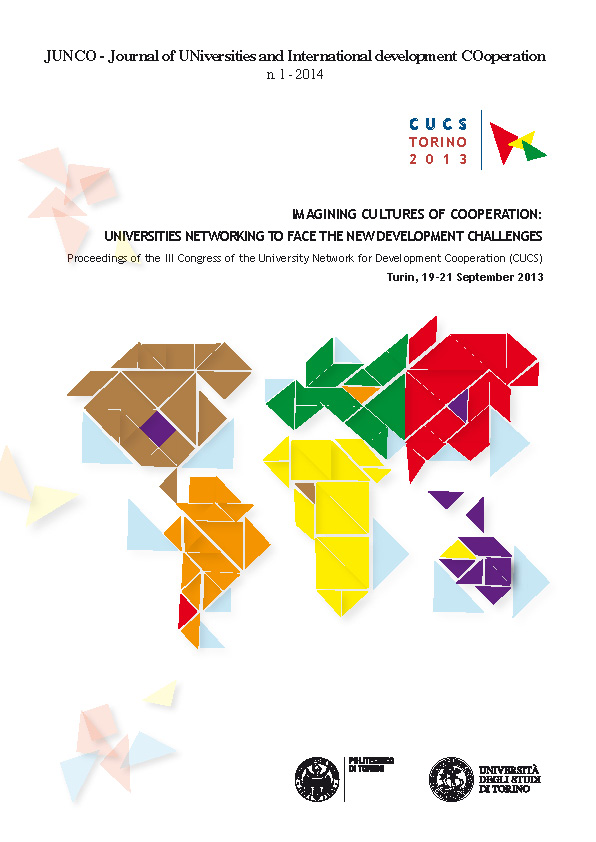OPEN DATA AND OPEN ACCESS: WHICH KNOWLEDGE SHARING FOR DEVELOPMENT COOPERATION?
DOI:
https://doi.org/10.13135/2531-8772/522Abstract
The significant value of Open Data and Open Access, both as transparency tools toward public opinion, and as valorization of the results achieved by the institutions, is growing on a daily basis, at global level. Even the world of university cooperation can now take the opportunity to confront with the latter. Regarding this topic, many are the questions upon which we would like to reflect together, especially looking at what we learned in the last few years.
Which could be the advantages and disadvantages for university cooperation, originating from a more and more intense data and information sharing? Which are the tools and the most suitable channels? Which indicators or objective systems will have to be monitored as priority in the next years?
Which will be, in the short run, the system of indicators that our institutions will need in order to address their policies and to make visible, within international contexts, the mainfold initiatives promoted in the local contexts?
In May 2013 in Geneva, UNESCO launched at the world summit on the Information Society Forum its new initiative for Open Access.
UNESCO is the first organization of the United Nations to make available to everyone, free of charge, its publications, with the possibility to readopt and redistribute them. Does it represent an interesting stimulus, even for universities involved in the field of cooperation? If we really were able to share methodologies, tools, approaches how much more and better could we do?
In times of abundant resources, finding synergies among work groups and projects could be considered an interesting added value; now, in a phase of more and more scarce resources, the knowledge sharing commitment could turn out to be an essential operative modality to continue guaranteeing an effective presence of universities within the cooperation field. Starting from here, the panel proposes to delineate possible answers, confronting the point of view of the universities, national and international institutions and stimulating a cooperative reflection.


